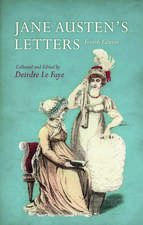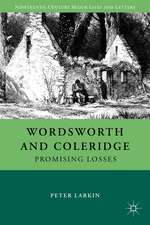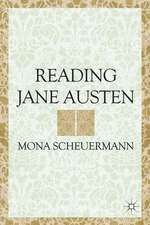Time, Space, and Gender in the Nineteenth-Century British Diary
Autor R. Steinitzen Limba Engleză Hardback – 5 oct 2011
| Toate formatele și edițiile | Preț | Express |
|---|---|---|
| Paperback (1) | 386.81 lei 6-8 săpt. | |
| Palgrave Macmillan US – 5 oct 2011 | 386.81 lei 6-8 săpt. | |
| Hardback (1) | 388.72 lei 6-8 săpt. | |
| Palgrave Macmillan US – 5 oct 2011 | 388.72 lei 6-8 săpt. |
Preț: 388.72 lei
Nou
Puncte Express: 583
Preț estimativ în valută:
74.39€ • 77.19$ • 62.18£
74.39€ • 77.19$ • 62.18£
Carte tipărită la comandă
Livrare economică 18 martie-01 aprilie
Preluare comenzi: 021 569.72.76
Specificații
ISBN-13: 9780230115866
ISBN-10: 0230115861
Pagini: 272
Ilustrații: XI, 272 p.
Dimensiuni: 140 x 216 x 23 mm
Greutate: 0.43 kg
Ediția:2011
Editura: Palgrave Macmillan US
Colecția Palgrave Macmillan
Locul publicării:New York, United States
ISBN-10: 0230115861
Pagini: 272
Ilustrații: XI, 272 p.
Dimensiuni: 140 x 216 x 23 mm
Greutate: 0.43 kg
Ediția:2011
Editura: Palgrave Macmillan US
Colecția Palgrave Macmillan
Locul publicării:New York, United States
Cuprins
PART I: THE MANUSCRIPT DIARY Elizabeth Barrett, the Abandoned Diary, and the Challenge of Time Arthur Munby, the Endless Diary, and the Promise of Space Family, Gender, and the Intimate Diary PART II: THE DIARY IN PRINT The Politics of Publication Fiction and the Feminization of the Diary
Recenzii
"In this well-researched and cogently organized book, Steinitz gives us nineteenth-century diaries in manuscript and print, fact and fiction. Actual diaries were often shared among intimates, kept with equal assiduity by men and women, and invested in both introspection and external observation. Fiction feminized the diary, depicting it as a private repository of feeling that could then become a narrative device for disclosing secrets. Filled with excellent insights about an impressive range of materials, this is the most comprehensive study of the British nineteenth-century diary to date." - Sharon Marcus, Orlando Harriman Professor, Columbia University and author of Between Women: Friendship, Desire and Marriage in Victorian England
"Steinitz s study of the nineteenth-century British diary, and of the widely varied uses to which diarists, novelists, and cultural panjandrums put the genre, is impressively panoptic and tightly focused all at once. You ll be struck by how many diarists Steinitz manages to zoom in on, and instructed by how much sense she makes of them, revealing, among much else, that the form s powers as a cultural practice often doomed its practitioners to a sense of failure; that its operations over space as well as time rendered it indispensable both as a figure for expanding empire, and as a hedge against the unprecedented social and physical change impelled by that expansion; and finally, in the book s most sustained argument, that the still-familiar conceptual link between diaries and the feminine was widely promulgated precisely because it concealed a more intricate and inconvenient truth about the genre s practical androgyny. Steinitz accomplishes all this with such prestidigital dexterity that while it s hard to see exactly how she does it, it s easy to savor how well." - Stuart Sherman, author of Telling Time: Clocks, Calendars, and English Diurnal Form, 1600-1795
"Steinitz s study of the nineteenth-century British diary, and of the widely varied uses to which diarists, novelists, and cultural panjandrums put the genre, is impressively panoptic and tightly focused all at once. You ll be struck by how many diarists Steinitz manages to zoom in on, and instructed by how much sense she makes of them, revealing, among much else, that the form s powers as a cultural practice often doomed its practitioners to a sense of failure; that its operations over space as well as time rendered it indispensable both as a figure for expanding empire, and as a hedge against the unprecedented social and physical change impelled by that expansion; and finally, in the book s most sustained argument, that the still-familiar conceptual link between diaries and the feminine was widely promulgated precisely because it concealed a more intricate and inconvenient truth about the genre s practical androgyny. Steinitz accomplishes all this with such prestidigital dexterity that while it s hard to see exactly how she does it, it s easy to savor how well." - Stuart Sherman, author of Telling Time: Clocks, Calendars, and English Diurnal Form, 1600-1795
Notă biografică
REBECCA STEINITZ Associate Professor of English atLesley University, Massachusetts,USA.

















